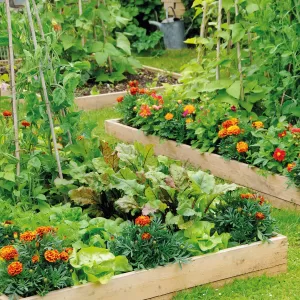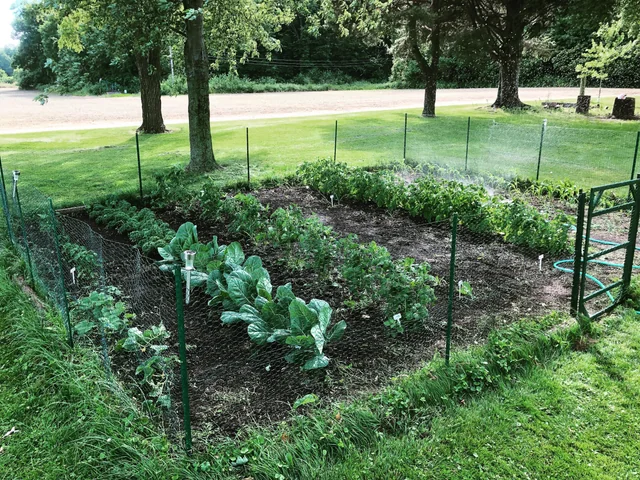Starting a vegetable business can be one of the most rewarding ventures for aspiring entrepreneurs, especially in Africa, where the demand for fresh produce is ever-growing. Vegetables are not only a crucial part of the diet but also represent a lucrative market opportunity, particularly for those with limited financial resources. With as little as N20,000, you can embark on this journey, utilizing small spaces and local markets to your advantage.
This guide will provide you with a comprehensive roadmap to establish your vegetable business, focusing on practical steps to ensure success while navigating challenges along the way.
1. Understand Your Market
Before you plant a single seed, it’s essential to conduct thorough market research. Understanding your target customers is the cornerstone of a successful vegetable business. Begin by identifying who buys vegetables in your local area. This could range from households to small restaurants, supermarkets, and catering services. Each customer type will have different needs and preferences.
Engage with potential customers through informal conversations or surveys to gauge their preferences. What types of vegetables do they buy most frequently? Are there specific times of the year when they buy more? By gathering insights about local demand, you can tailor your production to meet market needs. For example, if leafy greens like spinach and lettuce are in high demand, prioritize these in your planting schedule. This proactive approach not only maximizes your chances of sales but also helps you build strong relationships with your customer base.
2. Choose a Suitable Space
Selecting the right space for your vegetable business is critical, especially when starting on a small budget. Fortunately, you don’t need a sprawling farm to grow vegetables. A small backyard, community garden, or even a balcony can serve as a productive space for your operations. You can even find an open space areas (along roads, streams or in open fields) to start this business.
Before settling on a location, assess the conditions of the soil and the amount of sunlight the area receives. Most vegetables require at least six hours of sunlight daily, so choose a spot that meets this criterion. Additionally, perform a simple soil drainage test by digging a hole and filling it with water. If the water drains quickly, you have good drainage, which is essential for healthy root development.
Remember that even limited spaces can yield a substantial harvest if managed correctly. You might also consider innovative gardening methods, such as vertical farming or container gardening, to maximize your output without requiring extensive land.
3. Prepare Your Soil and Plant
Once you have selected your space, the next step is to prepare the soil for planting. Soil health is paramount in vegetable farming, as it provides the nutrients necessary for plant growth. Start by enriching the soil with organic matter such as compost, which can be made from kitchen scraps or yard waste. This not only boosts soil fertility but also enhances its structure, allowing for better water retention and drainage.
When it comes to selecting what to plant, opt for fast-growing vegetables that are suitable for beginners. Leafy greens like jute leaf (ewedu) and spinach are great choices, as they can provide quick returns on your investment. Additionally, peppers are also relatively easy to cultivate and have a strong market demand.
Make sure to plant seeds at the right depth and spacing according to the guidelines for each vegetable type. Proper planting techniques will set the foundation for healthy plants and a bountiful harvest. Monitor your plants regularly, and be prepared to adjust your watering and care routines based on their growth stages.
4. Invest in Essential Tools
While you don’t need an extensive array of tools to start your vegetable business, having a few essential gardening tools will make your work easier and more efficient. Invest in basic tools like a watering can, hoe, trowel, and rake. These tools will help you with soil preparation, planting, and maintaining your garden.
A watering can is especially important, as regular watering is critical to the success of your crops, particularly during dry spells. A hoe will assist in weeding and soil cultivation, while a trowel is useful for planting seedlings and digging small holes. A rake can help you prepare the soil by breaking up clumps and leveling the surface.
By keeping your tools well-maintained and organized, you’ll save time and effort, allowing you to focus on growing your business. The initial investment in these tools can yield significant returns through healthier plants and improved productivity.
5. Use Organic Manure and Pesticides
Fertilizing your crops appropriately is essential for encouraging robust growth and maximizing yields. Organic manure is an excellent choice for enriching your soil, providing a slow release of nutrients over time. You can source organic manure from local farms or even create your own compost using kitchen waste, grass clippings, and other biodegradable materials.
When it comes to pest control, adopt an integrated approach. While it’s vital to protect your crops from pests, consider using organic pesticides or natural deterrents whenever possible. This not only safeguards your produce but also appeals to health-conscious consumers who are increasingly looking for chemical-free options. Always follow safety guidelines when applying any treatment, ensuring that your crops remain safe for consumption.
Using organic methods not only supports sustainable farming practices but can also set your products apart in the market. As consumers become more aware of the benefits of organic produce, your commitment to natural farming can enhance your business’s appeal.
READ ALSO: Food Crops You Can Grow in Your Balcony in Nigeria
6. Promote Your Business
Effective marketing is crucial for any business, including a small vegetable venture. Utilize both traditional and digital marketing strategies to reach potential customers. Start by networking within your local community. Share your produce with friends, family, and neighbors, encouraging them to spread the word.
Social media can also be a powerful tool for promoting your business. Create accounts on platforms like Facebook and Instagram, where you can share appealing photos and updates about your harvests, can attract more followers and potential buyers.
Consider setting up a simple roadside stand or participating in local farmers’ markets. Transparent packaging or attractive baskets can make your products stand out and appeal to customers. Word-of-mouth recommendations and visible, appealing displays will go a long way in establishing your brand in the community.

7. Manage Your Produce
Proper management of your harvested vegetables is essential to ensure quality and minimize losses. Given that vegetables are highly perishable, timely harvesting and effective storage solutions are critical. Harvest your crops at the right time, ensuring they are fresh and ready for sale.
Once harvested, store your vegetables in cool, dry conditions to prolong their freshness. Use containers or sacks that allow for air circulation, preventing moisture build-up and spoilage. Transport your produce with care, ensuring they are not damaged during transit.
Establish a routine for checking the quality of your produce regularly. This vigilance will help you identify any issues early on, allowing for prompt action to minimize losses. By effectively managing your produce, you can maintain high quality, which is essential for customer satisfaction and repeat business.
8. Maintain Your Garden
The maintenance of your vegetable garden is vital for long-term success. Regularly monitor your plants for signs of disease or pest infestations, as early detection can prevent larger issues. Implement a routine for weeding, as weeds compete for nutrients and water, negatively impacting your crops.
Keep your garden clean and organized. Remove any debris and fallen leaves, which can harbor pests and diseases. Prune plants as necessary to promote healthy growth and improve air circulation.
Engaging in continuous learning about best gardening practices can also enhance your skills over time. Join local farming groups or online communities to exchange tips and gain insights from other farmers. Maintaining a well-kept garden not only boosts your productivity but also enhances your reputation as a reliable vegetable supplier.
9. Diversify Your Crop Selection
As you become more comfortable in your vegetable farming venture, consider diversifying your crop selection. Planting a variety of vegetables can help mitigate risks associated with market fluctuations and pest outbreaks. If one crop doesn’t perform well, others may still thrive, ensuring some level of income.
Research seasonal vegetables that can be rotated throughout the year. This not only maximizes the use of your land but also attracts a broader customer base, as different vegetables will appeal to different segments of the market.
Additionally, think about incorporating herbs or specialty vegetables that may have higher market value, such as organic tomatoes, bell peppers, or even exotic varieties that are less commonly found in your area. Diversification can lead to increased profits and a more resilient business model.
10. Build Relationships with Suppliers
Forming relationships with local suppliers can significantly benefit your vegetable business. Whether you need seeds, organic fertilizers, or gardening tools, establishing a rapport with reliable suppliers can lead to better prices and more consistent quality.
Attend local agricultural fairs or markets to meet potential suppliers and explore various options. Building these relationships not only helps secure the resources you need but can also provide insights into the best practices for vegetable farming. A strong network can open doors for collaborations, discounts, and even partnerships that can enhance your business.
Conclusion
Starting a small vegetable business with limited capital is entirely possible with the right approach and dedication. By understanding your market, choosing suitable planting spaces, and implementing effective management practices, you can cultivate a thriving enterprise. Although, this may have its challenges, but with perseverance and creativity, your small vegetable business can flourish, providing not only financial returns but also contributing to your community’s health and well-being. Embrace the opportunity, and watch as your hard work leads to fruitful results.

